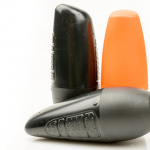Man Faces Court for Filming Under Cubicle Door

30-year old French national Mehdi Gaci has been charged with recording an intimate image without consent arising from an incident that allegedly occurred in a Sydney bar on Saturday, 27 April 2019.
Police allege that at around 1am that morning, Mr Gaci entered the female toilets at a hotel on Oxford Street in Darlinghurst and reached under a cubicle door with his mobile phone.
According to a police statement, “the woman… [inside the cubicle] called out and knocked on the wall before looking over the wall and saw a man holding a mobile phone”.
“The incident was reported to hotel security who contacted police”.
The man was arrested and conveyed to Surry Hills Police Station where he was charged with recording an intimate image without consent under section 91P of the Crimes Act 1900, and refused police bail.
He appeared before Downing Centre Local Court yesterday, where he pleaded not guilty and was granted conditional bail.
The case has been adjourned until 11 June 2019 and investigations are continuing.
The law on non-consensual intimate images in NSW
Following debate about the perceived inadequacy of laws relating to the non-consensual distribution of images, the NSW legislature passed the Crimes Amendment (Intimate Images) Act of 2017 which inserted the following offences into the Crimes Act 1900 (NSW):
- Recording an intimate image without consent – section 91P,
- Distributing an intimate image without consent – section 91Q,
- Threatening to record an intimate image without consent – section 91R(1), and
- Threatening to distribute an intimate image without consent – section 91R(2).
The maximum penalties for each of those offences is 3 years in prison and/or $11,000 fine
Definitions
An ‘intimate image’ is defined by section 91N as:
- an image of a person’s private parts, or of a person engaged in a private act, in circumstances in which a reasonable person would reasonably expect to be afforded privacy, or
- an image that has been altered to appear to show a person’s private parts, or a person engaged in a private act, in circumstances in which a reasonable person would reasonably expect to be afforded privacy.
The same section defines ‘private parts’ as:
- a person’s genital area or anal area, whether bare or covered by underwear, or
- the breasts of a female person, or transgender or intersex person identifying as female, whether or not the breasts are sexually developed.
It defines a ‘engaged in a private act’ as:
- in a state of undress, or
- using the toilet, showering or bathing, or
- engaged in a sexual act of a kind not ordinarily done in public, or
- engaged in any other like activity.
Required ‘Mens rea’ (or mental state)
The required mental state for offences under section 91P and 91Q is that the defendant intended to record or distribute the images, or was reckless in that regard.
The required state for section 91R is that the defendant intended to cause the other person to fear that the threat would be carried out, and it is irrelevant whether the image actually existed.
Statutory defences
Section 91T provides that an offence under section 91P or 91Q does not occur where:
- the conduct was for a genuine medical or scientific purpose, or
- the conduct was by a law enforcement officer for a genuine law enforcement purpose, or
- the conduct was required by a court or otherwise reasonably necessary to be done for the purpose of legal proceedings, or
- a reasonable person would consider the conduct acceptable, having regard to each of the following (to the extent relevant) the nature and content of the image, the circumstances surrounding the act, the age, intellectual capacity, vulnerability or other relevant circumstances of the person depicted, the degree to which the actions affect the privacy of the person depicted, and the relationship between the complainant and defendant.
Rectification orders
Section 91S of the Act empowers a court to order a person who is found guilty under section 91P or 91Q to take reasonable steps to remove, retract, recover, delete or destroy any intimate image recorded or distributed.
The maximum penalty for a failure to comply is 2 years in prison and/or a fine of $5,500.






